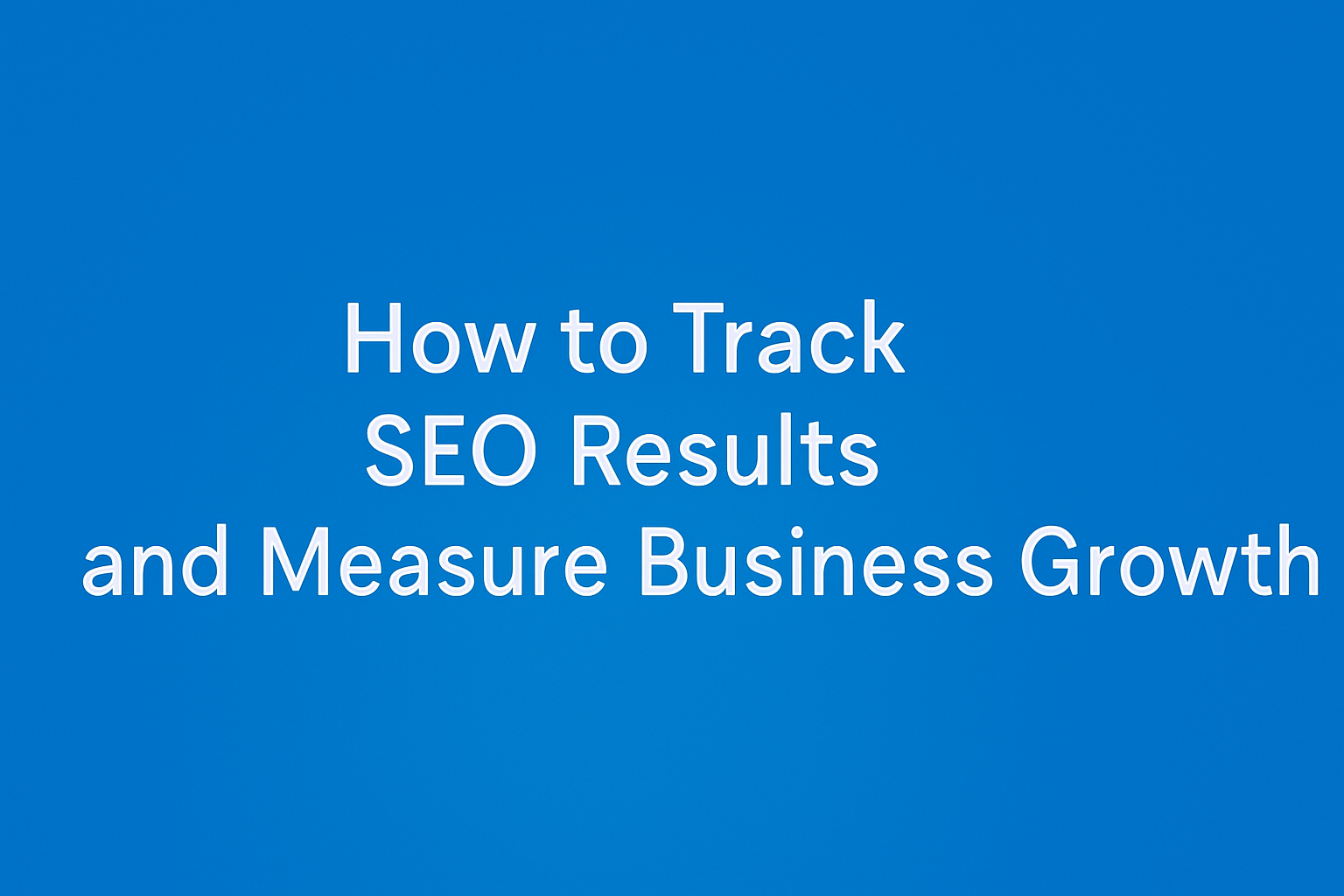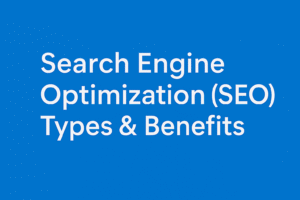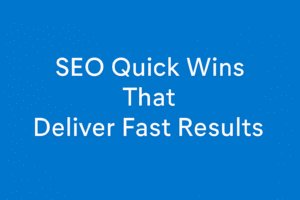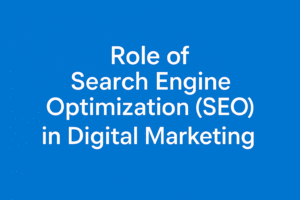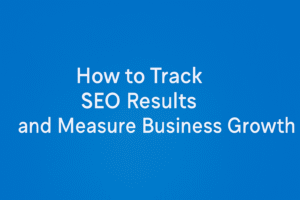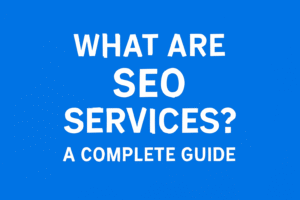Search Engine Optimization (SEO) is the backbone of online visibility. In today’s digital landscape, businesses compete fiercely to appear on the first page of Google and other search engines. But simply implementing an SEO strategy is not enough—you also need to track and measure your SEO results to ensure you’re moving in the right direction.
The purpose of search engine optimization is to improve your website’s visibility, attract relevant visitors, and ultimately drive conversions. However, SEO takes time to get results, and progress often depends on your competition, industry, and consistency.
That’s why understanding how to measure performance is so important. Whether you’re a business owner exploring search engine optimization in digital marketing, or working with professional SEO agencies, knowing how to check your progress helps refine your approach and maximize your ROI.
Why Monitoring SEO Results Matters
Many businesses start investing in SEO with high expectations, but without proper tracking, it’s impossible to know whether your efforts are paying off. Measuring SEO results is not just about seeing higher rankings—it’s about understanding whether your website is attracting the right audience and generating business growth.
The purpose of search engine optimization is to:
- Improve visibility on various types of search engine platforms (Google, Bing, YouTube, etc.).
- Drive targeted traffic that is likely to convert.
- Strengthen brand authority through consistent online presence.
When you monitor your SEO, you gain insights into what’s working and what needs improvement. For instance, some SEO quick wins (like optimizing meta titles or fixing broken links) can bring immediate improvements, but lasting success requires a long-term SEO strategy.This balance of short-term and long-term gains is why tracking progress is critical. Without measurement, even the best seo strategy may fail to deliver sustainable business results.
How Long Does It Take to See SEO Results?
One of the most common questions businesses ask is: “How soon will I see SEO results?” The honest answer is that SEO takes time to get results. Unlike paid ads that generate instant traffic, SEO is a long-term investment that builds gradually over months.
Factors that Influence the Timeline:
- Competition in Your Industry – Highly competitive niches may take longer to rank.
- Website Authority – New websites typically need more time compared to established domains.
- Content and SEO Strategy – A strong SEO and content strategy can speed up progress.
- Technical SEO Health – Issues like site speed, broken links, and poor mobile optimization can delay results.
- Local Search Engine Optimization – For businesses focusing locally, results may come faster if competition is limited.
On average, businesses start noticing improvements within 3–6 months. Initial gains may include higher impressions, small keyword ranking jumps, and modest increases in organic traffic. However, long-term SEO strategy—like building backlinks and producing valuable content—can take 12 months or more to fully show results.
Patience is key. Unlike one-off digital advertising types, SEO compounds over time. The sooner you start, the sooner your website gains traction.
Key Metrics to Track SEO Progress
Measuring SEO success goes beyond checking if your site appears on Google. To truly understand your SEO results, you need to track a mix of performance, engagement, and business-related metrics. Here are the most important ones:
1. Organic Traffic Growth
This is the number of visitors reaching your site through search engines. Tracking organic traffic helps you see how well your SEO strategy is bringing in potential customers.
2. Keyword Rankings
Monitoring where your target keywords rank gives you a clear idea of visibility. Over time, an effective SEO and content strategy improves rankings for competitive terms related to your business.
3. Backlink Profile & Domain Authority
High-quality backlinks remain one of the strongest ranking factors. SEO agencies often provide detailed reports on backlinks to show growth in authority.
4. Conversion Rates from Organic Search
The ultimate purpose of search engine optimization is not just traffic—it’s conversions. Track how many leads, sign-ups, or sales come from organic visitors.
5. Engagement Metrics
Metrics like bounce rate, average session duration, and pages per visit indicate whether users find value in your content. These numbers reflect both content quality and user experience.
6. Local Rankings
For businesses targeting specific areas, local search engine optimization is crucial. Tracking Google Maps listings, reviews, and local keyword rankings helps measure local visibility.
By consistently analyzing these metrics, you’ll know whether your SEO services and strategies are delivering real growth.
Tools to Measure SEO Results
To track SEO results effectively, you need the right tools. These platforms help measure visibility, spot opportunities, and refine your SEO strategy.
Google Analytics
- Tracks organic traffic, user behavior, and conversions.
- Helps you see how SEO impacts business goals.
Google Search Console
- Provides keyword ranking data, impressions, and click-through rates.
- Identifies technical issues like indexing problems and mobile errors.
Google Business Profile (GBP) Insights
For local search engine optimization, monitoring your Google Business Profile (formerly GMB) is crucial. GBP performance reports provide detailed interaction data such as:
- Customer actions → calls, website visits, and requests for directions.
- Bookings → track how many people scheduled an appointment directly through your profile.
- Interactions → see how users engage with photos, posts, and reviews.
- Keyword insights → discover which search terms triggered your profile and brought in the most interactions.
This makes GBP one of the most valuable tools for local businesses to measure seo results beyond just rankings.
For businesses focused on local growth, combining Google Analytics, Search Console, and Google Business Profile gives the clearest view of how well your SEO strategy is working.
Common Challenges in Tracking SEO Results
Even with the right tools, businesses often face difficulties when trying to measure their SEO results. Here are some common challenges to watch out for:
1. SEO Takes Time
Unlike paid ads, SEO does not deliver instant outcomes. Since SEO takes time to get results, many businesses get discouraged after just a few weeks of effort. The reality is that most progress appears over months, especially when working on a long-term SEO strategy.
2. Attribution Issues
It can be tricky to connect SEO directly to revenue. Visitors may discover your site through a blog post, but convert weeks later via another channel. Understanding how digital marketing and types interact with SEO (e.g., social media, paid ads, email) is key to correct attribution.
3. Confusion Between SEO & SEM
Many people confuse SEO with SEM. “Search engine marketing what is it?” SEM includes paid ads, while SEO focuses on organic visibility. Both are part of types of search engine marketing, but results and tracking methods differ.
4. Tracking Vanity Metrics Instead of Business Growth
High rankings and traffic are exciting, but if they don’t lead to conversions, they may not matter. The true purpose of search engine optimization is to generate qualified leads and sales.
5. Understanding SEO Terminology
SEO has its own language—terms like bounce rate, CTR, and backlinks can overwhelm newcomers. Misinterpreting these metrics may cause businesses to overlook meaningful insights.
6. Local SEO Challenges
For local businesses, tracking local search engine optimization results can be difficult without closely monitoring Google Business Profile (GBP) performance. Calls, direction requests, and bookings are just as important as keyword rankings.By recognizing these challenges early, you can adjust your SEO strategy to focus on the right numbers and avoid wasting time or resources.
These actions often lead to immediate boosts in rankings, clicks, and engagement.
Short-Term SEO Wins vs. Long-Term Growth
One of the biggest mistakes businesses make is expecting only quick results from SEO. While there are SEO quick wins that can show improvement in weeks, the real value comes from a long-term SEO strategy. Both approaches are important, and they work best when combined.
Short-Term SEO Quick Wins
These are changes that bring noticeable improvements in visibility and traffic within a short period:
- Optimizing meta titles and descriptions.
- Fixing broken links and redirect errors.
- Improving site speed and mobile responsiveness.
- Updating or repurposing existing content.
- Claiming and optimizing your Google Business Profile for local search engine optimization.
These actions often lead to immediate boosts in rankings, clicks, and engagement.
Long-Term SEO Strategy
Lasting success in search engine optimization for business requires consistent effort. Long-term strategies include:
- Creating a strong SEO and content strategy focused on valuable, evergreen content.
- Building high-quality backlinks from authoritative websites.
- Growing brand authority and trust in your niche.
- Optimizing for various types of search engine platforms like Google, Bing, and YouTube.
- Aligning SEO with other digital advertising types and marketing channels.
Why You Need Both
Short-term tactics keep momentum going, but only long-term investments ensure sustainable growth. Remember, seo takes time to get results, so think of quick wins as stepping stones toward building long-term authority.
Businesses that focus only on fast gains often plateau, while those that stay committed to a bigger picture strategy see compounding benefits year after year.
SEO and Content Strategy Connection
You can’t talk about SEO without talking about content. In fact, an effective SEO and content strategy is one of the strongest drivers of sustainable results. Content gives search engines something to index and rank, while SEO ensures that content gets discovered by the right audience.
How Content Powers SEO
- Keyword Optimization → Creating content around terms your audience searches for, such as “search engine optimization in digital marketing” or “seo your website”.
- Content Depth & Relevance → High-quality, in-depth articles rank better than thin content.
- Freshness → Updating blogs, guides, and landing pages signals to search engines that your site is active.
Why SEO Needs Content
Without content, there’s nothing to optimize. Search engines rely on text, media, and structured data to determine relevance. Pairing SEO best practices with useful content is what drives seo results.
Content That Works for SEO
- Educational blogs explaining all about search engine optimization and types of search engine marketing.
- Location pages supporting local search engine optimization.
- Landing pages optimized for services, helping with search engine optimization for business.
- Multimedia content like videos and infographics that attract backlinks and improve engagement.
The Business Payoff
The ultimate purpose of search engine optimization is to generate leads and sales. By building content aligned with your audience’s intent, you turn visibility into measurable business growth.
In short, content fuels SEO, and SEO amplifies content—making them inseparable in any modern digital marketing strategy.
SEO for Different Business Needs
Every business has unique goals, and your SEO strategy should reflect that. What works for a global e-commerce brand won’t be the same as what works for a local service provider. Here’s how SEO applies to different types of businesses:
Search Engine Optimization for Business Growth
For companies selling products or services online, SEO ensures your website is visible to people actively searching for what you offer. A well-planned strategy can:
- Increase product visibility on Google Shopping and organic listings.
- Drive qualified leads to service-based businesses.
- Support brand credibility in competitive industries.
Local Search Engine Optimization (Local SEO)
For small businesses like restaurants, salons, or local services, local SEO is essential. Optimizing your Google Business Profile helps you rank in “near me” searches, gain reviews, and attract customers in your area. With GBP performance tracking, you can see:
- Calls made directly from your profile.
- Direction requests to your location.
- Appointment bookings.
- Which keywords generated customer interactions.
This makes local SEO one of the most valuable investments for community-driven businesses.
Enterprise and National SEO
Larger companies often compete across regions or countries. Here, strategies involve:
- Building authority with high-quality backlinks.
- Targeting multiple search engine optimization types, including YouTube SEO and voice search.
- Aligning SEO with digital advertising types like display ads, email, and social campaigns.
When to Hire SEO Agencies
Some businesses can manage SEO in-house, but many prefer working with professional SEO agencies. Agencies bring expertise, advanced tools, and proven methods to maximize ROI. For complex sites or competitive industries, agency support ensures better and faster growth.
In short, SEO adapts to your business size and goals. Whether you need local SEO quick wins or a long-term SEO strategy for enterprise growth, tailoring the approach ensures you get meaningful seo results.
SEO in the Bigger Picture of Digital Marketing
While SEO is powerful on its own, it becomes even more effective when combined with other digital marketing and types. Understanding how SEO fits into the bigger picture helps businesses create a balanced strategy for long-term growth.
SEO vs. SEM (Search Engine Marketing)
A common question is: “Search engine marketing, what is it?”
- SEO focuses on organic results by optimizing your website and content.
- SEM includes paid strategies like Google Ads and display ads.
Both are types of search engine marketing, and when used together, they cover both quick wins and long-term growth.
SEO and Other Digital Advertising Types
SEO works best when paired with other digital channels:
- Content Marketing → Fuels SEO with high-value blogs, guides, and resources.
- Social Media Marketing → Drives traffic that complements organic search growth.
- Email Marketing → Keeps SEO-driven leads engaged.
- Paid Ads → Deliver immediate visibility while SEO builds long-term rankings.
The Purpose of Search Engine Optimization in the Bigger Picture
The ultimate purpose of search engine optimization is to attract high-intent visitors, while other digital channels nurture and convert them. For example:
- SEO brings in traffic.
- Remarketing ads convert undecided visitors.
- Email nurtures leads into customers.
Why SEO Remains the Foundation
Unlike paid ads that stop delivering results the moment you stop spending, SEO compounds over time. A solid long-term SEO strategy builds brand authority, reduces dependency on ads, and creates consistent growth.
In short, SEO is not just one piece of the puzzle—it’s the foundation of sustainable digital marketing success.
Infinitra Web – Your Partner for Measurable SEO Results in the UAE
At Infinitra Web, we understand that businesses in the UAE need more than just rankings—they need real growth, visibility, and conversions. Our mission is to deliver customized search engine optimization for business that helps you dominate search results and attract the right customers.
Our SEO & Digital Marketing Services
- SEO Strategy & Execution → From SEO quick wins to a complete long-term SEO strategy, we help businesses achieve lasting visibility.
- Local Search Engine Optimization (Local SEO) → Optimizing your Google Business Profile (GBP) to track and boost calls, direction requests, appointments, and keyword-driven interactions.
- Content & SEO Integration → Aligning SEO and content strategy so your website not only attracts traffic but also converts visitors into customers.
- Technical SEO & Audits → Fixing performance blockers like speed, indexing, and mobile usability.
- Comprehensive Digital Marketing → Blending SEO with other digital advertising types to deliver a full-funnel growth strategy.
Our Service Areas in the UAE
Infinitra Web proudly provides SEO and digital marketing solutions across the UAE, including:
Whether you’re a local business looking for local search engine optimization, or a national brand expanding across the Emirates, our expert team ensures you achieve measurable seo results.
Ready to grow your business? Partner with Infinitra Web and let us build the right SEO strategy for your success across the UAE.

